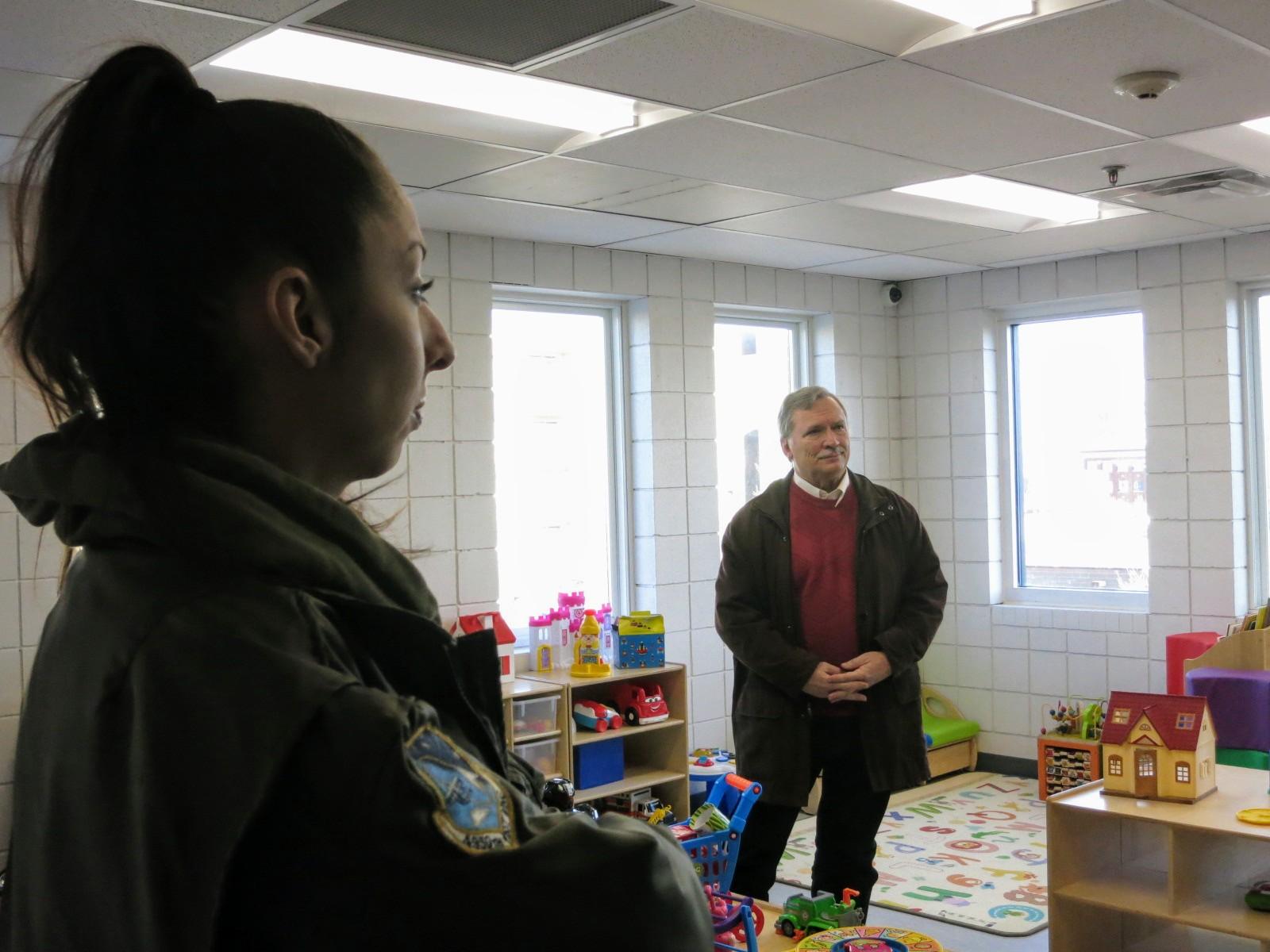Some 96,000 Denver families getting by on less than the median income are spending more than a third of their earnings -- in some cases a lot more -- on housing. The city has only about 23,348 income-restricted homes.
Metro Denver organizations that support people experiencing homelessness or who are just clinging to housing assessed the needs of 3,239 struggling households in 2018. They were able to connect only 661 to housing.
After a day of listening to those and other sobering statistics, District 1 representative Amanda Sandoval summed up the sense of Denver City Council: "We're in a crisis."
Sandoval and all but one of the council's 13 members had spent nearly seven hours Friday exploring homelessness and housing issues with officials from the city's housing department, other city staff and nonprofit representatives. It was the first such retreat to focus on homelessness since 2015. Even their lunch was a working session, talking in small groups with Denverites who have benefited from city programs such as Denver Day Works, which offers work experience for people in homelessness.
Councilwoman Candi CdeBaca, who represents District 9, said what she heard about gaps between needs and resources was more evidence that the City Council should repeal the ban on urban camping it imposed in 2012. CdeBaca added she has not yet decided whether to propose a repeal. She has been considering such a step since late December, when a judge concluded that Denver's shelter system was inadequate and that for that reason it amounted to cruel and unusual punishment to bar people from sheltering under tents, tarps or blankets in public.
Friday's session included a briefing on the city's plans to revamp its shelters to ensure they can get people into housing, in part by ensuring they were places people could get the financial, health or employment support they needed to get into housing.
"It needs to be a pathway into permanent housing and not just an emergency management system," James Ginsburg, a deputy director in the housing department, told council members.
Presentations touched on a wide range of issues, including the challenge of creating housing that can be rented or sold below market rates in a city where median rents have 68 percent and median single-family home prices 137 percent since 2012.
Debra Bustos, former vice president of real estate for the Urban Land Conservancy, a Denver affordable housing nonprofit, said it can take years to put together public and private money to build subsidized housing. Bustos recently moved to the city's housing department as a deputy director.
The city does no building of its own. In 2018 Denver pledged to help fund the creation and preservation of more than 6,000 affordable units over five years. Housing staff said Friday that 2,200 homes were created or preserved during the first two years of that plan.
"That's significant progress toward the five-year goal," said Laura Brudzynski, another housing department deputy director.
Denverites can track progress toward the goal on the housing department's web site, city councilors learned Friday.
The highlights: ways in which Denver is a national model in addressing homelessness.
Annie Bacci of the Corporation for Supportive Housing described to council members a pilot program begun in 2016 that her national nonprofit manages. The Colorado Coalition for the Homeless and the Mental Health Center of Denver use police arrest data to identify people experiencing chronic homelessness, then help them with housing and health, food, transportation, legal and other support.
The program is funded with money from eight investors as well as from state and local housing resources and Medicaid reimbursements. The investors get payments for each day a participant is housed and not in jail. The city is betting those payments will be less than what it spends providing emergency room services and jailing people experiencing chronic homelessness. Early results have been promising.
Denver Public Library community resource manager Elissa Hardy told council members that in 2015 the library was among the first in the country to hire a social worker. It has since pioneered another step, hiring people who have experienced homelessness or other trauma to help guide library patrons to housing and other resources. Hardy consults nationally and internationally on library outreach to people experiencing homelessness.
Last year, Hardy said, Denver library social workers and peer navigators logged more than 5,000 contacts with people in need, most of them experiencing homelessness or housing insecurity, and many of whom had not sought help elsewhere.
Council members joked about the amount of data they were hearing. But they also asked for more. Councilwoman At-Large Robin Kniech asked for details on the number of people experiencing homelessness who are working. Councilwoman at-large Debbie Ortega pressed for an inventory of land where affordable housing could be built.
"If we don't have good data ... it makes it very hard to track if we're making progress," said District 11 Councilwoman Stacie Gilmore.

District 10 Councilman Chris Hinds noted no figures were offered on the number of people with disabilities who are experiencing homelessness. Britta Fisher, who leads the city's housing department, said that data point is not part of an annual survey known as the Point in Time that provides much of demographic information on homelessness.
Hinds said that on a tour of shelter facilities earlier this month, council members found 14 beds for people who use wheelchairs. More beds were available at shelters accessible by bus, but the buses didn't accommodate wheelchairs, he said.
"I could go to City Park right now and find more than 14 people in wheelchairs," Hinds said.
Like Friday's retreat, the shelter tour was meant to inform future policy discussions.
"We have spent a lot of time together this month," Fisher told council members at the end of the day Friday. "I am really pleased to have your engagement and your partnership."













